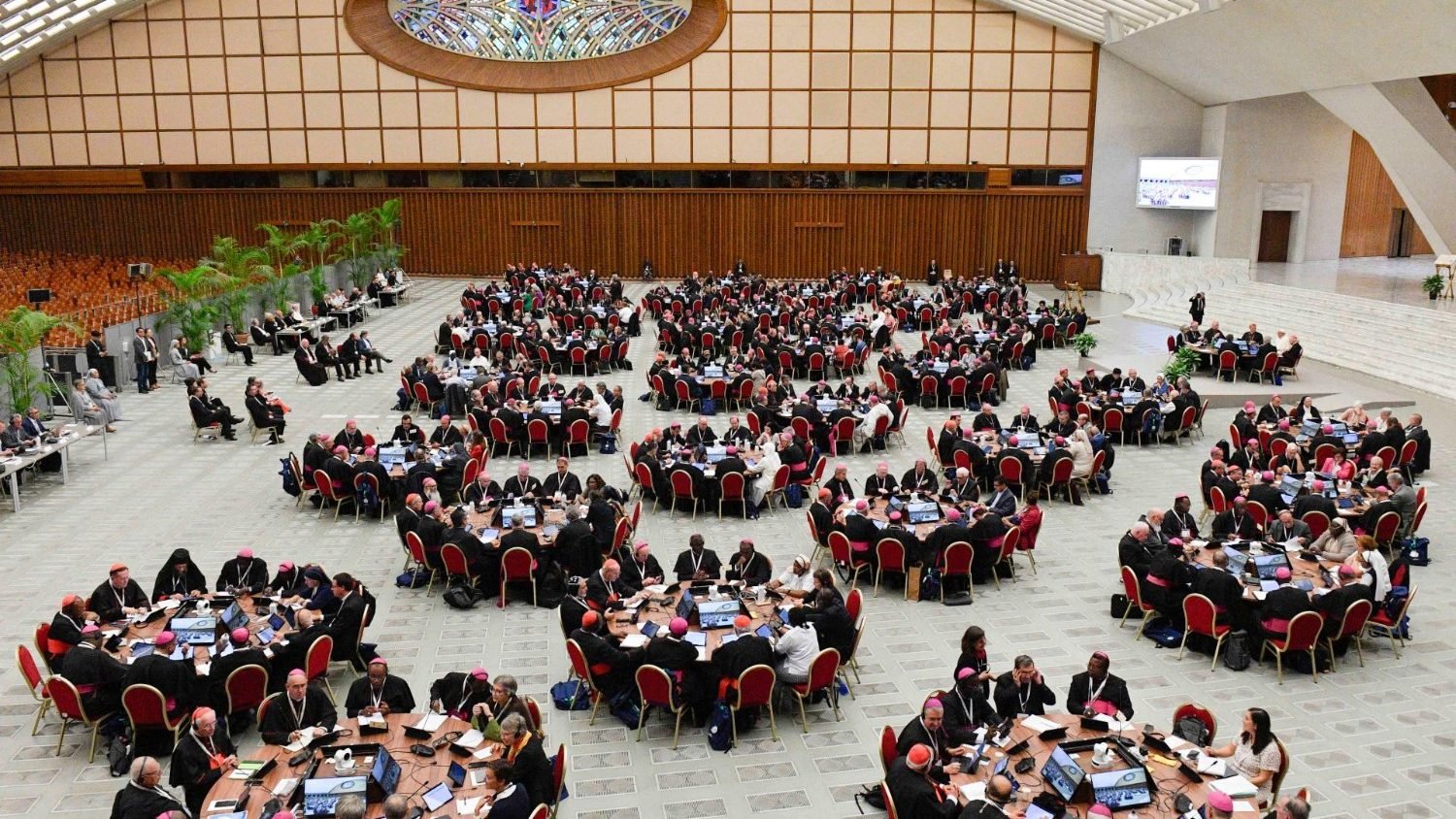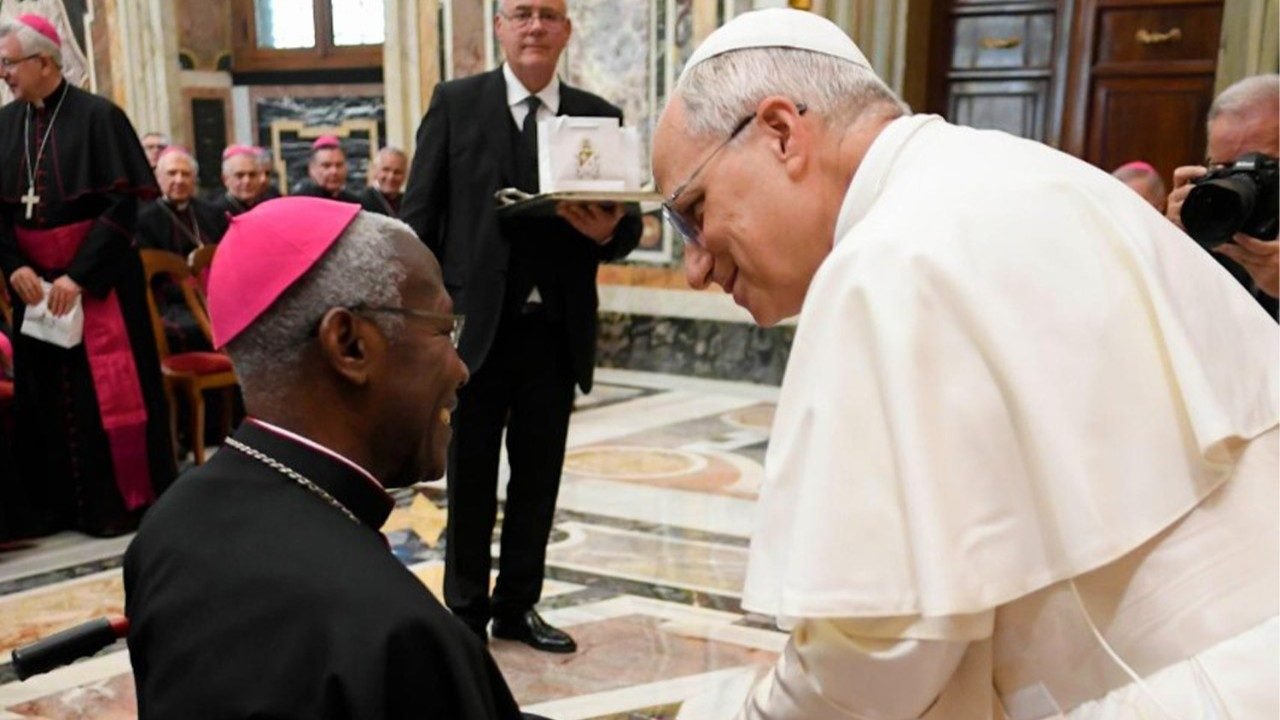In a note published on its 60th anniversary, Cardinal Mario Grech, Secretary General of the Synod of Bishops, traces the evolution of the Synod of Bishops and looks ahead to the future.
By Salvatore Cernuzio
Cardinal Mario Grech, Secretary General of the Synod of Bishops, has invited the Church to “make every effort to ensure that the third phase of the synodal process constitutes a further step forward in the experience and understanding of synodality”,
The encouragement comes in a note published for the 60th anniversary of the establishment of the Vatican body.
In the letter, Cardinal Grech says that Pope Francis defined synodality as “the privileged way to achieve communion in the Church.”
These sentiments have also been echoed by Leo XIV, who at last Sunday’s Angelus underlined St. Paul VI’s “prophetic intuition” in creating the Synod of Bishops in 1965, as the Second Vatican Council was drawing to a close.
The Pope said that he hoped that the 60th anniversary of this body “will inspire a renewed commitment to the unity and mission of the Church”.
This hope is reiterated by Cardinal Grech in his note, which comes during the third stage of a synodal process which Pope Francis launched at the grassroots level in 2021.
Starting from the dioceses and local churches, the process included three stages that resulted in the two assembly sessions at the Vatican in 2023 and 2024. These meetings produced the Final Document, which Cardinal Grech urges the local Churches and their regional bodies to now look to, in order to try out its proposals.
Paul VI’s “prophetic” intuition
Cardinal Grech begins his note by looking at the roots of the Synod, starting from Paul VI’s creation of the Synod of Bishops through the motu proprio Apostolica Sollicitudo.
He instituted this body, Grech writes, in order to “respond to the requests of the Council Fathers” to involve the College of Bishops “in the Petrine prerogative of solicitude for the whole Church.”
The cardinal explains that Paul VI endowed the Church with “a central institution representing the entire episcopate, capable of fostering unity and collaboration between the bishops of the whole world and the Bishop of Rome” and of “assisting him with advice” on issues and questions of decisive importance for the People of God.
Renewal of ecclesial life
Since then, 16 Ordinary General Assemblies, 3 Extraordinary General Assemblies, and 11 Special Assemblies have been held.
Cardinal Grech explains that all the Popes since the Council have accepted the proposals or final documents formulated by the various assemblies and used them to produce post-synodal apostolic exhortations written for the Church, documents which “have greatly contributed to the renewal of ecclesial life.”
Pope Francis’ transformation
However, during these 60 years, the Synod of Bishops has also undergone “a significant evolution,” Cardinal Grech notes. This is thanks to each of the Popes, Grech said, and in particular Pope Francis, who “wanted to transform the Synod from an event reserved for an assembly of bishops into a process in stages, in which the whole Church participates.”
This resulted in a first phase in consultation with the People of God, then the various “discernment” stages done by the Episcopal Conferences, the Continental Assemblies, and the Ordinary General Assemblies, which took place in Rome in October 2023 and 2024.
Pope Francis had already signaled this upcoming change in October 2015, during his speech for the 50th anniversary of the institution of the Synod of Bishops in the Paul VI Hall. There, the cardinal writes, he delineated “the terms of the transformation of the Synod from an event into a process”.
This involves “reciprocal” listening in which “everyone has something to learn”, Grech continues, from the people, the College of Bishops, to the Bishop of Rome. “Every person listening to the other; and all listening to the Holy Spirit”, the cardinal insists, adding that the Pope’s words then inspired the apostolic constitution Episcopalis Communio, promulgated seven years ago, on September 15, 2018.
A privileged path to communion in the Church
Cardinal Grech stresses that the experience of recent years has shown that “the exercise of synodality is the privileged way to achieving communion in the Church.”
“We experienced the beauty and power of this process during the first two phases of the XVI Ordinary General Assembly, in which we listened to what the Spirit was saying to the Church, learning to listen to one another,” he highlights.
It has been “an exciting journey,” marked by the stages of “ecclesial discernment” and sealed by the development and vote on the Final Document, which Pope Francis “immediately approved and delivered to the Church as part of the ordinary magisterium.”
Remembering all these events is, therefore, “a great joy for the General Secretariat of the Synod,” the cardinal emphasizes. At the same time, it is “an invitation to make every effort so that the third phase of the synodal process constitutes a further step forward in the experience and understanding of synodality.”




